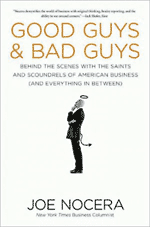Book Reviews
Book Reviews for Fall 2008

The Angel
By Carla Neggers (COM’77) Fiction (Mira Books)
A brutal thirty-year-old crime, the murderer long ago discovered and dead, kicks off this romantic thriller set in Ireland and Irish South Boston and peopled in part by the angelic and the purely evil. Neggers is a pro, author of more than fifty books, ten of them New York Times best sellers. She unveils a series of personal secrets on the way to revealing whodunit, but skillfully keeps two of the best: she doesn’t say whether supernatural forces are at work and, mischievously, she never tells the Irish tale on which much of the initial action is based. ~Natalie Jacobson McCracken

Blackbird, Farewell
By Robert Greer (SDM’73,’74, GRS’89) Fiction (Frog Books)
It’s the world of Greer’s six previous C. J. Floyd mysteries: Denver’s Five Points community — black, respectable, decidedly western, and upwardly mobile working class. It has its share of thugs, and the cast is augmented by outsiders, mostly white and villainous. C. J.’s godson, Damian, backed by other Floyd protégées, sets out to solve the murder of his best friend and longtime basketball teammate, and C. J. himself is only a name occasionally invoked until he comes riding to the rescue in the final pages. ~NJM

Eve of Destruction: The Coming Age of Preventive War
By Thomas M. Nichols (CAS’83) Nonfiction (University of Pennsylvania Press)
As other critics ponder the effects of America’s invasion of Iraq on international norms of war, Nichols, a United States Naval War College professor, argues that preventive force didn’t make its debut with Operation Iraqi Freedom. Nichols bypasses the standard debate, so common since March 2003, of whether the West has a right to counter threats before they materialize. Instead, he builds a case for the idea that prevention is already the post–Cold War reality, and suggests how preventive action might best be managed for achieving international security. ~Katie Koch

An Exact Replica of a Figment of My Imagination
By Elizabeth McCracken (CAS’88, GRS’88) Nonfiction (Little, Brown and Company)
Writing powerfully about one of the saddest things imaginable, the death of her nearly born baby, McCracken is sometimes improbably, bleakly funny. In the French hospital where she and her husband learn that their boy, forever known by his in utero name, Pudding, has died in the ninth month of pregnancy, a bungled translation provides the odd comfort of black humor.
“I will always be a woman whose first child died, and I won’t give up either that grievance or the bad jokes of everyday life,” she writes. As she chronicles her carefree first pregnancy, her cavernous loss, and her caution-filled (and ultimately successful) second pregnancy, you understand that she’s fulfilled that vow. ~Bari Walsh

Faithful to Fenway: Believing in Boston, Baseball, and America’s Most Beloved Ballpark
By Michael Ian Borer (GRS’01,’06) Nonfiction (New York University Press)
If the Red Sox are New England’s one true religion, then it’s not a stretch to view Fenway, the oldest functioning ballpark in America, as a shrine worthy of serious study. Still, it’s funny to imagine Borer, a sociologist and a New York native (don’t worry, he favors the Mets), sizing up Sox fans as if he were Dr. Livingstone peering down his nose at the natives. Yet he avoids much of the nostalgia and bravado that pervade popular writing about Fenway in favor of an evenhanded approach that respects the zealotry of fans while questioning the authenticity of their famed park. ~KK

Good Guys & Bad Guys: Behind the Scenes With the Saints and Scoundrels of American Business (and Everything in Between)
By Joe Nocera (COM’74) Nonfiction (Portfolio)
It’s tempting to pigeonhole America’s corporate titans as good guys or bad guys — especially these days. But that wasn’t Nocera’s intent throughout his career as a business writer for publications such as Fortune and the New York Times. Nocera, now a Times business columnist, says his job has always been “to draw out the people and stories that fascinated me and to show why things happened the way they did.” In this collection of profiles, articles, and columns he’s written in the last twenty-five years, Nocera does just that. His subjects range from Apple cofounder Steve Jobs (the bounce to his step “betrays a certain youthful cockiness; the quarterback of your high school football team used to walk that way,” he writes in a 1986 profile) to one-time junk bond king Michael Milken (“greedy beyond belief”). In the end, Nocera acknowledges, “Journalism is a profession that, by its nature, searches for heroes and goats — good guys and bad guys — and my journalism is no exception.” ~Cynthia K. Buccini

The Presidential Book of Lists: From Most to Least, Elected to Rejected, Worst to Cursed
By Ian Randal Strock (CAS’89) Nonfiction (Villard Books)
In a campaign season of firsts — come November, we will have our first African-American president or our oldest president to enter office and our first female vice president — it’s easy to forget that there were presidential groundbreakers before now. Take Grover Cleveland, still the only president to marry while in office, or Andrew Johnson, the only president without any formal education (he taught himself to read as an adult). Hundreds of examples like these are in Strock’s collection of lists, a necessary addition to the libraries of American history buffs and Jeopardy! hopefuls alike. ~KK

School Shootings: What Every Parent and Educator Needs to Know to Protect Our Children
By Joseph A. Lieberman (CFA’69) Nonfiction (Citadel Press)
This account of school shootings over four decades makes vivid an undeniable truth: they are horrifyingly, increasingly frequent. Denial is, in fact, part of the message here — the ongoing denial of parents, classmates, schools, even communities, whose watchfulness might have prevented tragedy. Lieberman’s concluding advice summarizes the lessons implicit throughout the book: be aware of the warning signs, control guns as individual parents and as a nation, actively oppose bullying, teach students that when they report worrisome behavior they are protecting, not betraying, a schoolmate, and hold school shooting drills as regularly as fire drills. ~NJM

Serial Killers and Sadistic Murderers: Up Close and Personal
By Jack Levin (COM’65, GRS’68) Nonfiction (Prometheus Books)
Levin, the Brudnick Professor of Sociology and Criminology at Northeastern University and a retired FBI profiler, has been studying serial killers for more than twenty-five years and has interviewed many, their families, friends, and victims. Serial murderers generally plan carefully and coolly and kill not for money or revenge, but for power and perhaps fame. They are most often depressed, controlling loners. Still, Levin says, parents, neighbors, and teachers are to be blamed only for their failure to seek help for the hundreds of thousands of such unhappy, but nearly always harmless, individuals. ~NJM

 Twitter
Twitter Facebook
Facebook
Post Your Comment